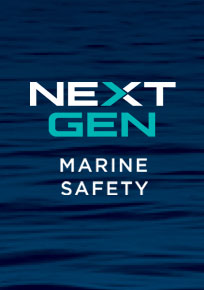Maritime 2050 - Navigating The Future

24.01.2019

Maritime 2050 Navigating the Future - Executive Summary - 52 Pages
Maritime 2050 is the government’s vision and ambitions for the future of the British maritime sector.
Launched on 24 January 2019, this strategy sets out the government’s vision and ambitions for the future of the British maritime sector. Maritime 2050 is about anticipating the challenges and opportunities ahead and recognising the UK’s strengths to be well placed to capitalise on them.
Maritime 2050 ambitions and goals will be achieved by focusing on 7 themes:
- UK Competitive Advantage
- Technology
- People
- Environment
- Trade
- Infrastructure
- Security and Resilience
The Secretary of State for Transport, Chris Grayling MP launched Maritime 2050. The first long-term strategy developed in close partnership with industry highlights the government’s recognition of the importance of the maritime sector to Britain’s future success. That importance has only increased in the context of the UK leaving the EU, with 95% of all UK trade being enabled by the sector.
Brexit has raised the profile of the sector, not least owing to national debate on the UK’s future trade relations. Whilst the sector is determined to manage the UK’s departure from the EU as smoothly as possible, it is also focused Beyond Brexit. Industry believes there are significant opportunities to: Foster innovation in new technologies including autonomy and clean growth, attract more maritime business to the UK, drive coastal economic development to create a coastal powerhouse, grow a skilled and diverse workforce.
Maritime 2050 is published at a time when the UK faces intense competition from maritime nations in the Far East, Northern Europe, Gulf and North America. Today the UK is regarded as the world’s leading centre for maritime services, maritime law, finance, insurance, management and brokering. Maritime 2050 is designed to maximise UK strength in this area, retaining and enhancing its competitive advantage and developing new areas to compliment the offer, such as green finance.
Maritime 2050 will strengthen the UK’s reputation for maritime innovation with an initial focus on autonomy and low-carbon technologies. For many of these technologies there is a time-limited golden opportunity to be an early adopter, particularly on low-carbon.
Harry Theochari, Chair of Maritime UK, said, “For the first time the maritime sector has a real long term strategy - setting out what government and industry will do to position the UK as the world’s leading maritime nation over the coming decades in an increasingly competitive global context. The UK is a maritime nation and our island, maritime status, is part of who we are. 95 percent of British imports and exports in goods are moved by sea, including 25 percent of the UK’s energy supply and 48 percent of food supplies.”
Harry Theochari added, “There are monumental opportunities for our sector – whether on technology, coastal economic development, attracting more maritime business to our shores or for the people that underpin our success. The global ocean economy will double in value to $3trn by 2030. Competitor maritime nations are hungry for the prize, and Maritime 2050 will ensure that the UK is best-placed to capitalise. Growing the maritime workforce – those that our maritime success and national prosperity relies upon is a smart move, too. Productivity is over 50% higher than the national average, so maritime can play a real role in helping address the UK’s productivity challenge. The task of turning these ambitious recommendations into reality rests on the strength of partnership between industry and government.”
All images are copyright Shock Mitigation 2025 unless otherwise stated.
This does not exclude the owner's assertion of copyright over the material.











